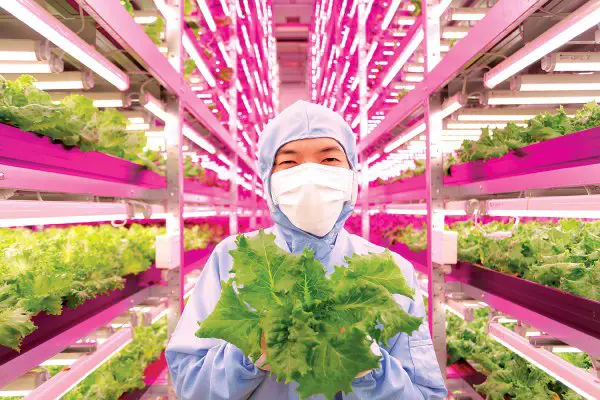World’s Largest Indoor Farm Is 100 Times More Productive Than Conventional Farms

In 2011, and earthquake and subsequent tsunami tore through the whole of Japan. In wake of the disaster, there was a local food shortage. Shigeharu Shimamura, a plant psychologist and indoor farmer decided to take action. He took an old abandoned semiconductor factory and turned it into the world’s largest indoor farm. His company is able make 10,000 heads of lettuce per day out of the 25,000 square feet facility. This means that it is 100 times more productive than a conventional outdoor farm. What makes this indoor farm even more remarkable, is that it uses 40% less power, produces 80% less food waste and 99% less water usage.
The entire food factory is powered by 17,500 LED lights which were specially designed by General Electric (GE) in Japan. The farms’ staggering success is mainly achieved by manipulating the plants’ day and night cycles and carefully controlling humidity and temperature. According to Shimamura, the lights run at a wavelength that increases the photosynthesis and cell division in the lettuce crops. As a result, nutrient-rich lettuce is able to grow two-and-a-half times faster than would be possible on an outdoor farm. In outdoor farms, a lot of water is lost as it seeps through the soil and evaporates into the atmosphere. However, the enclosed factory allows water to be collected and recycled from the environment, which explains the incredible water savings.
“I believe that, at least technically, we can produce almost any kind of plant in a factory. But what makes most economic sense is to produce fast-growing vegetables that can be sent to the market quickly. That means leaf vegetables for us now. In the future, though, we would like to expand to a wider variety of produce. It’s not just vegetables we are thinking about, though. The factory can also produce medicinal plants. I believe that there is a very good possibility we will be involved in a variety of products soon,” says Shimamura.

Leave Comment: